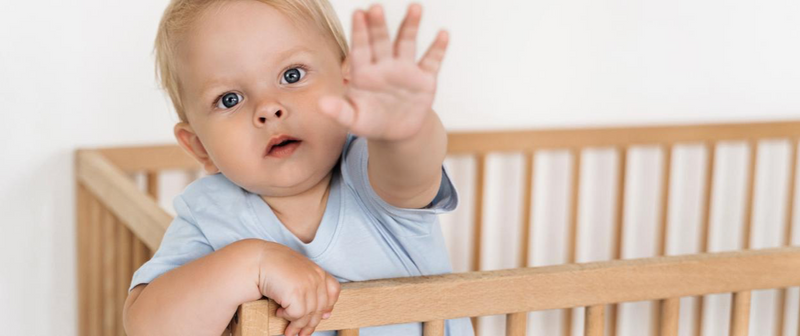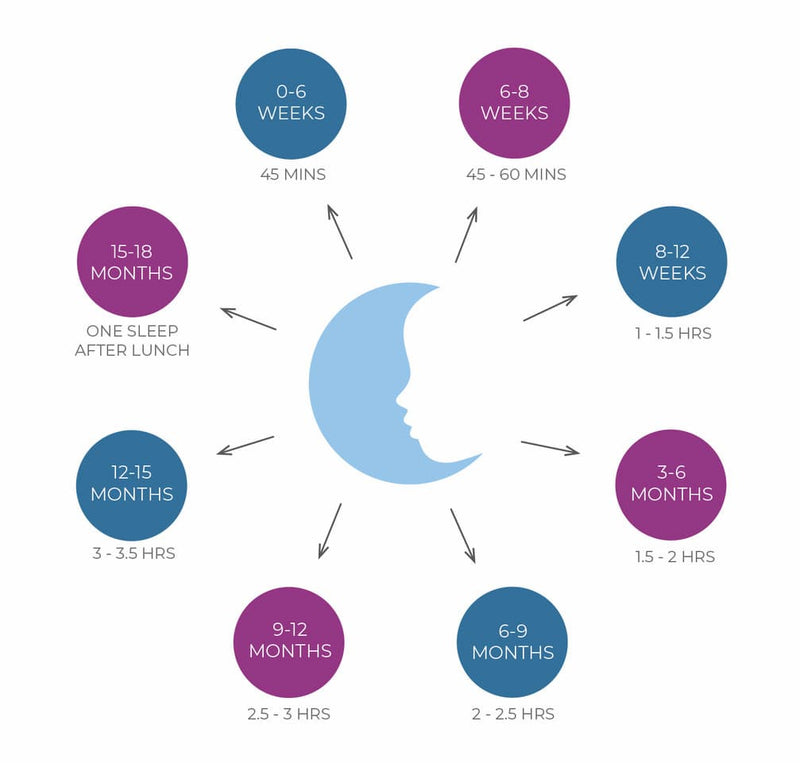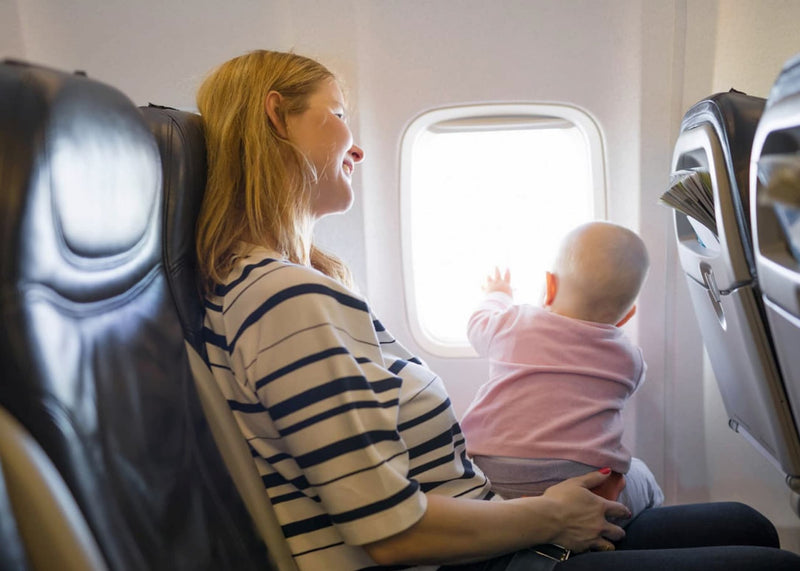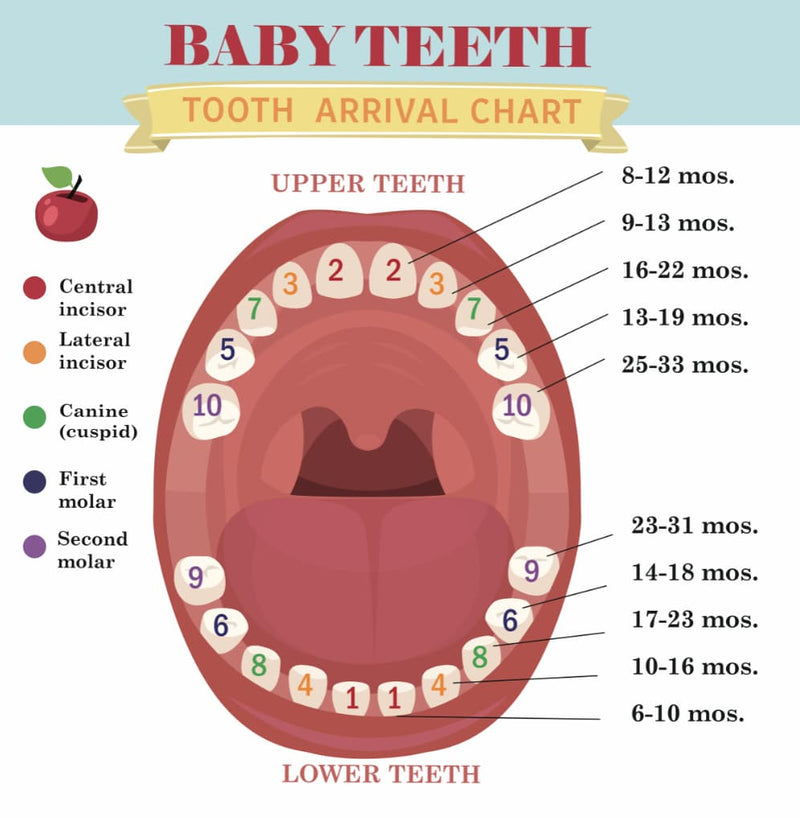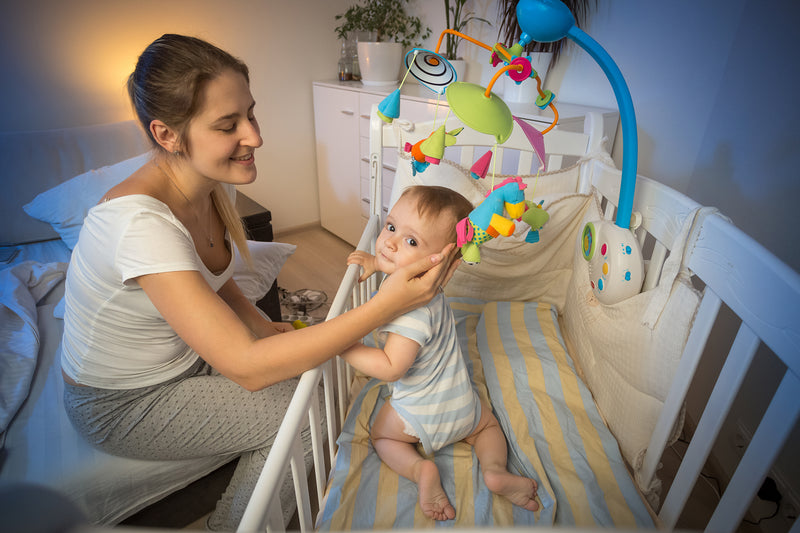
Strategies to Overcome Early Rising in Babies
Early rising is a common challenge that many parents face when it comes to their babies' sleep. Waking up before the crack of dawn can leave parents feeling exhausted and frustrated, wondering why their little one is up so early and how to help them sleep longer.
Understanding the reasons behind early rising and implementing strategies to overcome it can lead to more restful nights for both babies and parents alike. Here are some insights into why babies wake early and tips on how to eliminate early rising:
-
Hunger
Babies have small stomachs and often need to feed frequently, especially during the early months. Ensuring that your baby is adequately fed before bedtime holds significant importance in preventing early waking episodes due to hunger. Just like adults, babies require sufficient nourishment to sustain them through the night. If your baby goes to bed on an empty stomach or hasn't consumed enough calories during the day, they may wake up earlier than desired, seeking nourishment. By providing a full feeding before bedtime, you can help ensure that your baby's nutritional needs are met, reducing the likelihood of early waking due to hunger. Additionally, offering a bedtime feeding can also promote a sense of comfort and satiety, helping your baby to settle into a deeper and more restful sleep, contributing to longer stretches of uninterrupted rest for both your baby and yourself.
-
Discomfort
Factors such as wet nappy, teething pain, or being too cold can disrupt your baby's sleep and cause them to wake up earlier than desired.
-
Over-tiredness
Ironically, babies who are overtired may wake up earlier in the morning. When babies miss their natural sleep window and become overtired, it can lead to fragmented sleep and early wake-ups.
-
Environmental Factors
Noise, light, and other environmental factors can disrupt your baby's sleep and cause them to wake up earlier than intended. For example, if your baby's room is too bright or noisy, it may signal to them that it's time to wake up.
-
Ability to Self Soothe
Self-settling skills play a pivotal role in a baby's ability to maintain uninterrupted sleep throughout the night and prevent early waking episodes. When babies can soothe themselves back to sleep independently upon waking during the night, they are less likely to rely on external soothing methods, such as parental intervention, to fall back asleep. This independence fosters longer periods of restorative sleep, as babies learn to navigate through sleep cycles without needing external assistance. During the early morning hours, typically between 3-5am, children enter their lightest sleep phase. At this time, possessing the ability to self-soothe can be particularly advantageous.

Tips to Eliminate Early Rising:
My number one tip is to treat early morning wakings (prior to 6 am or your desired time) as a night waking, pretend its 1:00 am and encourage your baby to get back to sleep.
If you decide that your morning doesn't start until 6 am, then it does not start until 6 am! If your baby wakes at 5:40 am, and you decide that it is close enough…. Be warned: You could be setting yourself up for more early days ahead.
With the below tips and techniques along with time & consistency, early wakings will be a thing of the past!
Create a Sleep-Friendly Environment
Make sure your baby's sleep environment is conducive to restful sleep. Keep the room dark, quiet, and comfortably cool, and use white noise machines to minimise disruptions from outside noise.
Address Hunger and Discomfort
Ensure that your baby's basic needs are met before bedtime to minimise disruptions during the night. Feed your baby well during the day and particularly before bedtime. If your baby wets through you could use nappies a size bigger for bedtime as this can prevent overnight nappy changes, and finally address any discomfort they may be experiencing from teething or other issues.
Wake Windows and Naps
Pay attention to your baby's sleep cues and adjust their sleep schedule accordingly. Avoid letting your baby become overtired by putting them down for naps before they become overly sleepy, which can help prevent early wake-ups. A child that doesn’t nap sufficiently during the day can often lead to being overtired. An overtired baby will generally experience a difficult time falling asleep, this is usually followed by a restless night along with an early start to the day.
Bedtime
It’s common for parents to try to put their children to bed later thinking they will sleep in later, generally this backfires because babies miss their sleep window and become overly tired which leads to more night wakings and early rising. An ideal bedtime is normally between 6-7pm. Sometimes earlier depending on your baby’s age and last nap.
Temperature
An ideal room temp is between 19-22 degrees. I recommend dressing your child for the coldest part of the night (which is usually 3-4 am), In some cases that may mean putting the fan or A/C on when they go to bed & turning it off later.
Habitual
For babies over 4 months old, early waking can become a habitual behaviour. In such cases, it's often best to allow them to settle themselves back to sleep, as long as they're not excessively distressed. Entering their room during these early waking episodes may inadvertently signal that it's time to start the day, making settling attempts less effective. Between 4 and 7 months, if you choose to intervene with settling techniques, it's important to ensure that your baby can't see you. To buy yourself some time and keep your baby entertained until your desired wake-up time, consider offering a soft toy or another comforting object to distract them.
Be Patient and Consistent
Overcoming early rising takes time and patience, so be consistent with your approach and give your baby time to adjust to any changes you make to their sleep routine. Consistency is key to helping your baby develop healthy sleep habits and overcome early rising.
________________________________________________________________________________
About Me
Chantal Murphy
I am a mother to two boys, a paediatric sleep consultant, and the founder of Baby Sleep Magic. From the beginning of my journey, helping parents has truely been my passion! With this in mind, I developed The Baby Sleep Magic App to provide parents with evidence-based research, essential skills, knowledge, and confidence required to enhance your child's sleep, allowing your entire family to enjoy the restful nights you deserve.
________________________________________________________________________
Learn how to get your baby to sleep ALL night using a CRY FREE approach!!
"Working on your baby's sleep doesn’t mean breaking any bonds or attachments you have with your little one"
If you're feeling confused and overwhelmed and not sure where to start rest assured you’re not alone and I understand. Allow me to guide you through everything you need to know to confidently manage sleep, so you can get your nights back & enjoy the parenting journey!







